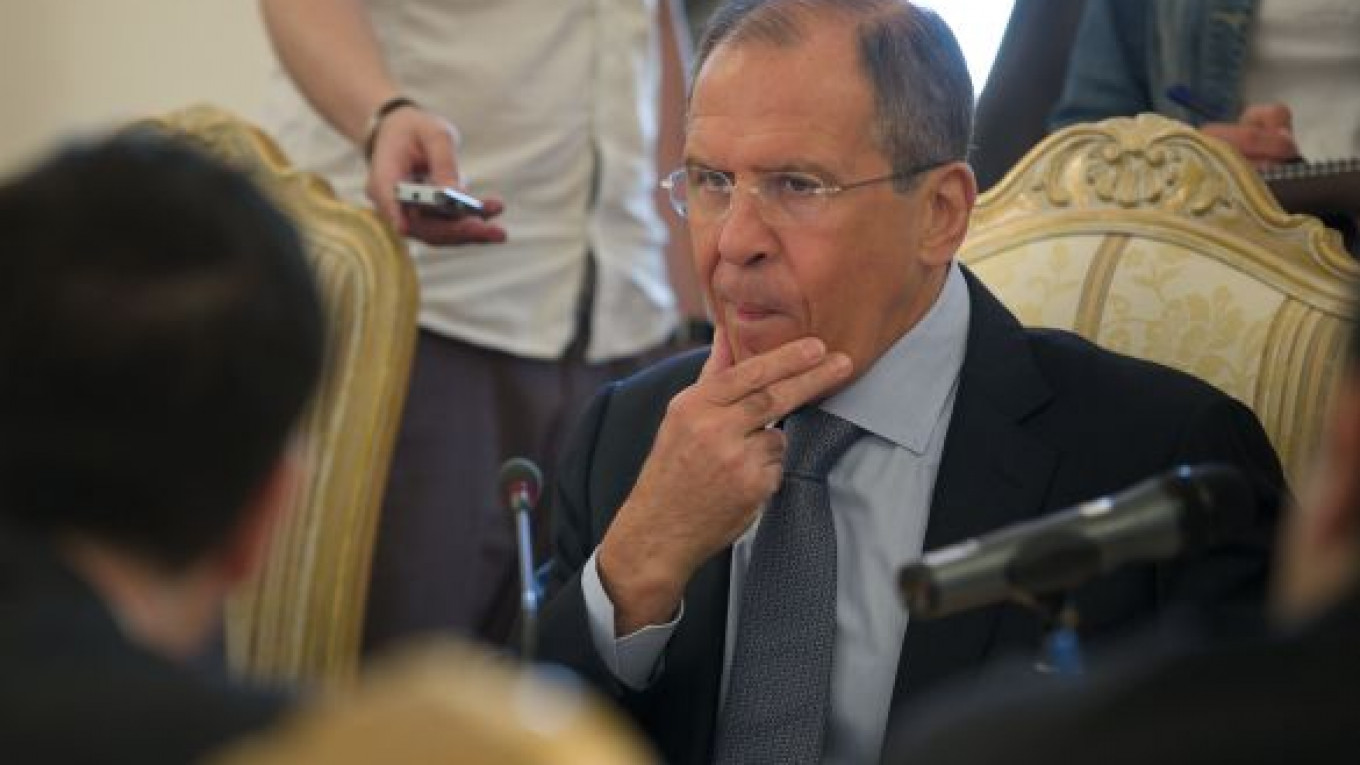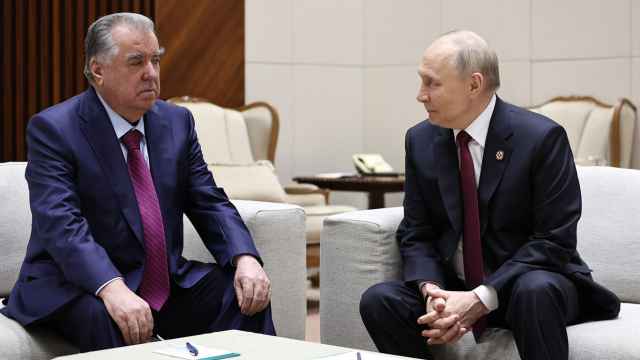GENEVA — Russia's pledge to deliver anti-aircraft missiles to Damascus at a time when world powers are trying to end Syria's civil war is consistent with a pattern of using the weapons system as a bargaining chip in its power struggle with the West.
Russia has said it is committed to selling the S-300 surface-to-air missiles as a deterrent against foreign military intervention under a contract struck in 2010 with Syrian President Bashar Assad.
But Western powers who are trying, along with Russia, to organize an international conference to end the 26-month-old conflict say such a delivery would be hugely counter-productive.
"No one knows if this conference will become a success, but it is the wrong message which has been sent by Russia to the world and to the region by delivering S-300 or other weapons," German Foreign Minister Guido Westerwelle said Friday.
Secret WikiLeaks cables show that Russia has played this game before, in particular with the long-range S-300 that Israel, for one, sees as a "red line" threat to its airspace.
Secret Wikileaks cables show that Russia played this game before in offering the weapons to Iran.
Russia's determination to supply Syria mirrors an earlier commitment to Iran, though it long assured diplomats it had no intention of sending S-300s to either country, the cables show.
Russia was well aware of the "destabilizing" effect of supplying weapons like the S-300 to the Middle East, one September 2008 cable quoted Viktor Simakov, counselor for Israel and Palestine in Russia's Foreign Ministry, as saying.
"Simakov reiterated that Russia understood very well Israel's concern about either Syria or Iran obtaining the Iskander or S-300 missile systems," the cable said.
Syria had upset Russia by allowing an earlier delivery of anti-tank missiles to fall into the hands of militant Islamist group Hezbollah, and Russia promised tighter "end-user controls" in future.
Syria tried to obtain missiles in 2008 by offering to host Russia's own missile defenses on its territory, matching U.S. missile defenses in Europe that Russia objects to. Although Russia did sign a contract in 2010, it did not then agree; Israel's promise not to sell arms to Georgia during the Georgia-Russia war that August may have outweighed Syria's offer.
Speculation was mounting in late 2008 that Russia was planning to honor its 2005 contract to supply S-300s to Iran. But Russian officials assured the U.S. charge d'affaires in Moscow that the transfer would not be completed until Iran complied with its nuclear obligations, according to one cable.
But by early 2009, the sale looked like it was going to take place, and Washington asked six allied Middle Eastern countries to raise the issue immediately with Russia.
The move appeared to pay off, although then-U.S. Ambassador to Moscow John Beyrle expected Russia to keep pressing the issue, for financial, political and foreign policy reasons.
The Iran sale was merely "frozen," Deputy Foreign Minister Sergei Ryabkov told U.S. Senator Carl Levin in 2009, and hinted that Russia did not want to be challenged again.
"The less we hear from Washington about this, the better," an April 2009 cable quoted Ryabkov as saying.
Russian officials told Amos Gilad, at that time head of the political-military bureau in Israel's Ministry of Defense, that the missiles to Iran would not be delivered for political reasons.
"However, Gilad said the Russians would reassess this political calculation should the United States continue to pursue missile defense plans in Poland and the Czech Republic," said a cable dated July 30, 2009.
In the end, Russia scrapped the sale in 2010, and in what may have been a quid pro quo, the Israelis agreed to sell Russia surveillance drones that would narrow its technological military gap with Georgia.
"For better or for worse, the delivery of S-300's have become a barometer of our bilateral relations," Ambassador Beyrle wrote in 2009.
A Message from The Moscow Times:
Dear readers,
We are facing unprecedented challenges. Russia's Prosecutor General's Office has designated The Moscow Times as an "undesirable" organization, criminalizing our work and putting our staff at risk of prosecution. This follows our earlier unjust labeling as a "foreign agent."
These actions are direct attempts to silence independent journalism in Russia. The authorities claim our work "discredits the decisions of the Russian leadership." We see things differently: we strive to provide accurate, unbiased reporting on Russia.
We, the journalists of The Moscow Times, refuse to be silenced. But to continue our work, we need your help.
Your support, no matter how small, makes a world of difference. If you can, please support us monthly starting from just $2. It's quick to set up, and every contribution makes a significant impact.
By supporting The Moscow Times, you're defending open, independent journalism in the face of repression. Thank you for standing with us.
Remind me later.






